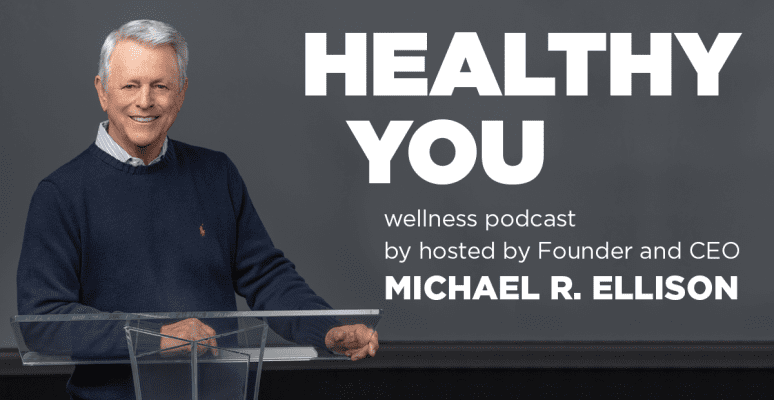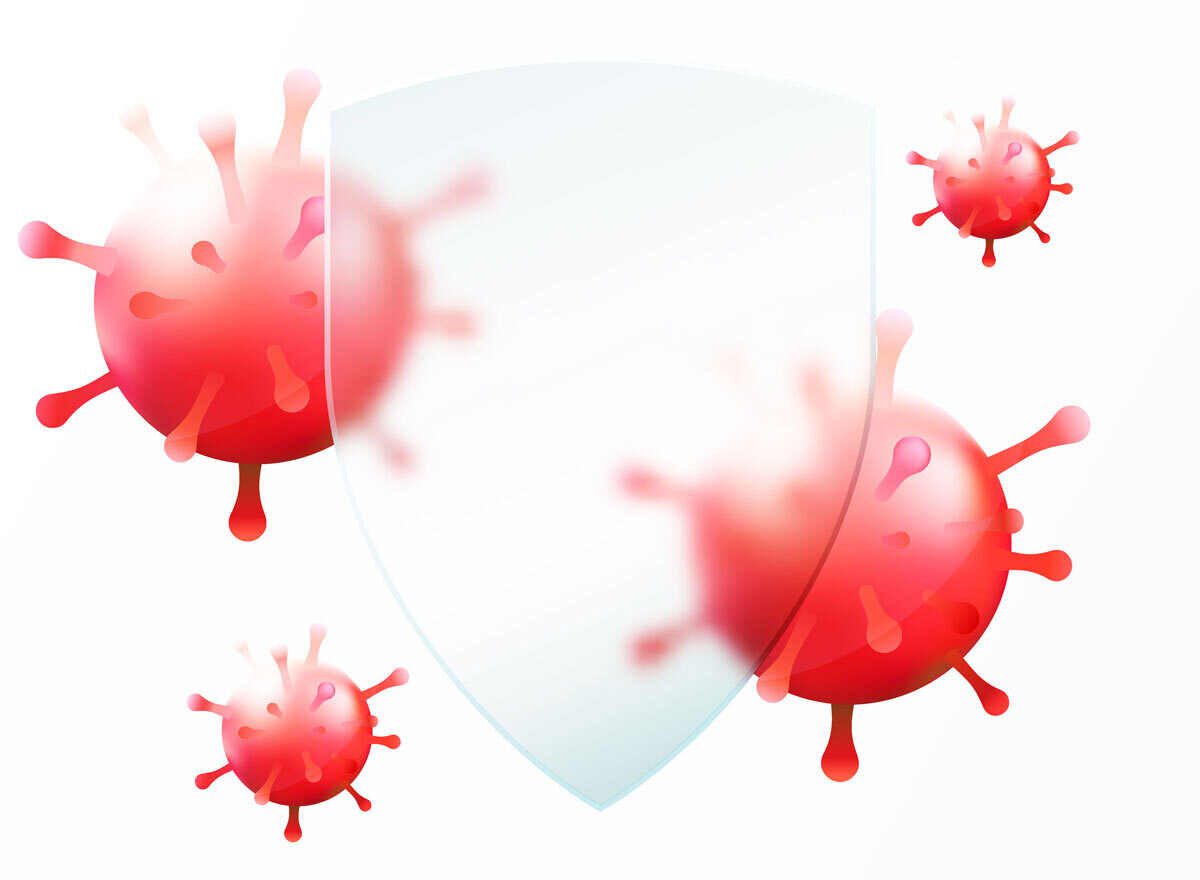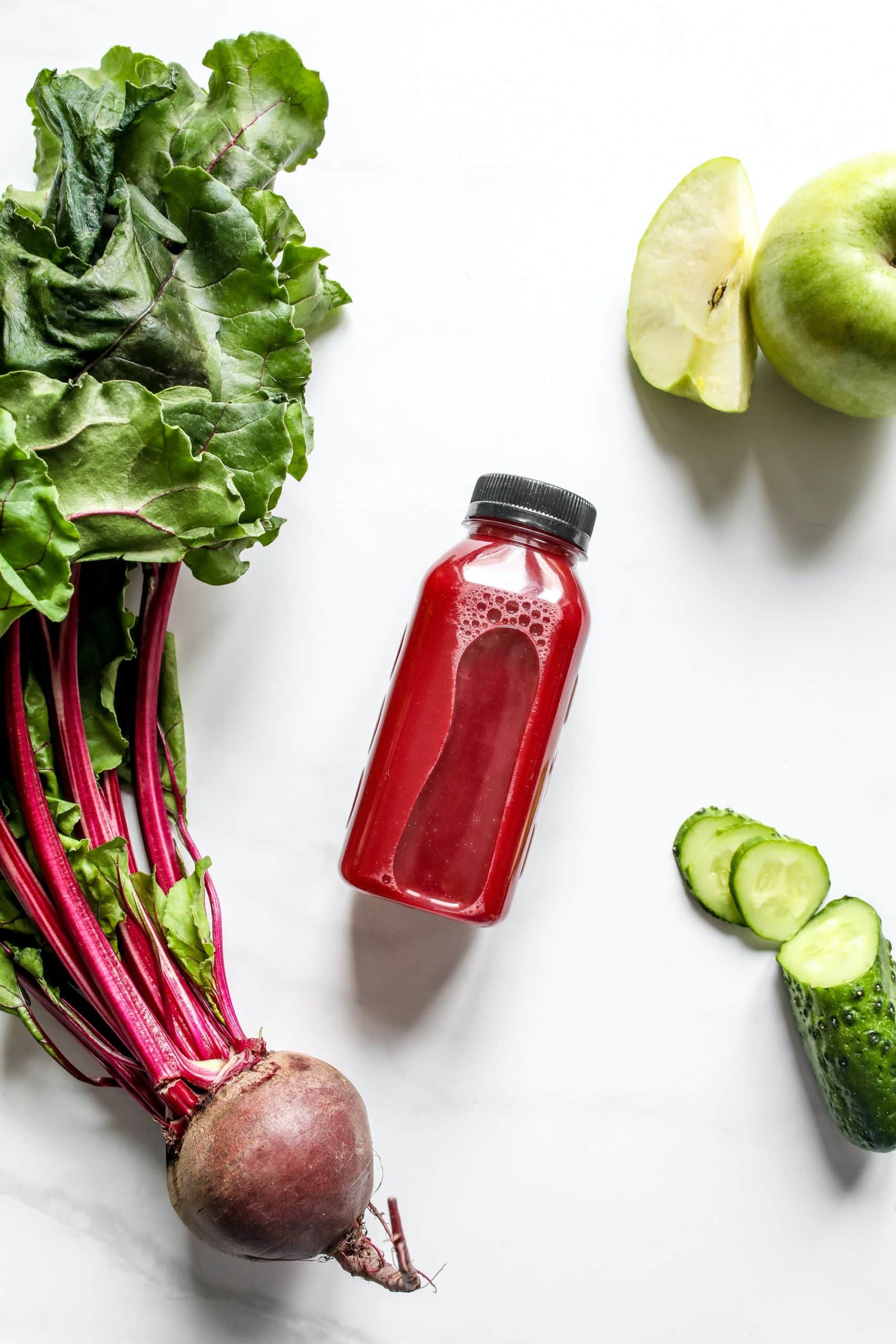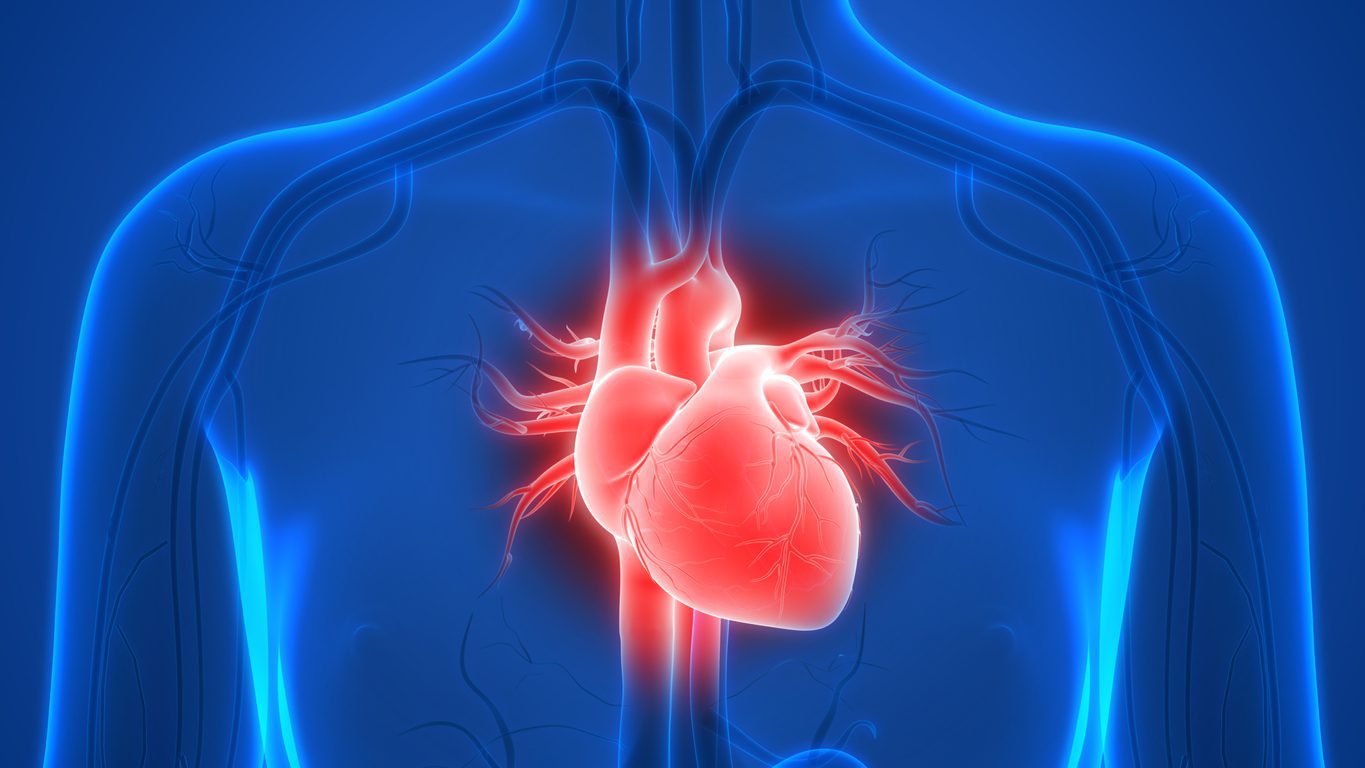Your cart is currently empty!
Blog
-

FEEL BETTER and BRIGHTER with NeuroShine®
With over 74 million Baby Boomers in the U.S., it’s no surprise that brain health and cognitive function are popular topics. However, mood management and mental health awareness are on the rise as well. According to Mental Health America, one in five adults has a mental health condition, and millions are searching for natural solutions, such as scientifically validated dietary supplements, and lifestyle choices that can help support a brighter mood, better concentration, and overall cognitive function.
The brain serves as a go-to-get source for the various functions in our body system such as hearing, taste and smell, vision and the entire body balance. In addition, our brain plays an important role in controlling our behavior, mood and memories. Therefore, it is equally important for our brain to balance this function and research shows that a regular intake of certain dietary supplements in combination with exercise and diet such as the MIND Diet are some of the best ways to support the functioning of the brain and our mood; not only to make us feel brighter and better but also healthier.
An outbreak of nutritional science news with a particular emphasis on mood and brain function reflects the increasing interest in non-drug, natural interventions to help support that our brain is healthy and performs better as we age. Given the present state of our society where senile dementia like Alzheimer’s disease, Depressive disorder and other related variations are of greater concerns, this heightened interest of the populace to find a more effective and natural solution to brain health is timely. Particularly with the soaring costs of health care, increasing rate of Alzheimer, heightened occurrence of Bipolar Disorder (also called Manic Depressive Disorder), and the aging population which places more priorities than ever on changing lifestyle and prevention.
Over the years, however, pantothenic acid also called Vitamin B5, BacoMind, a standardized and branded form of Bacopa Monnieri and Lithium Orotate, have been shown to play a major role in brain health function and mood management, and these are ingredients that can be integrated into our diets and taken as dietary supplements.A 3-in-1 Supplement for Brain Health and Mood Management
Dietary supplements, and the ingredients from which they are produced, with their bioavailability and level of absorption, provide us with amazing natural product choices that have been clinically confirmed for their effectiveness to improve cognitive functions, manage mood and improve brain functions.
From BacoMind and Lithium Orotate to the varieties of natural cognitive supplements that can be derived from the pantothenic acid and other natural sources, individuals are now particularly interested in the effective methods of managing their mood and improving their cognitive function. Many people are increasingly wary of consuming the common prescription pharmaceutical drugs to enhance the proper functioning of the brain, as they are commonly produced from the combination of synthesized materials like amphetamine salts which can lead to severe health issues like disruption of sleep patterns, anxiety, depression, psychosis, loss of appetite and death.NeuroShine — Why Do You Need It?

“As a primary care physician, I encourage my patients to take responsibility for their brain health. I recommend that if they want to experience healthy aging of the brain, they should modify their diet, receive the proper amount of sleep and get regular physical activity. I also recommend adequate dietary supplementation to cover any nutrients that may be missing from their diet.
After reviewing the NeuroShine formula and the science behind each of the three ingredients, I’m confident that people who seek to optimize brain health can benefit by supporting their mood, memory and cognitive function with this product”
Ankit Chander, MD, MD (H)
Board Certified Integrative Medicine
Licensed Doctor of HomeopathyBacoMind® (Bacopa Monnieri)
As it supports mood, helps with psychological stress and supports the functioning of the brain including the memory, Bacopa Monnieri, (BacoMind®) has been especially reported to aid adults in cognitive performance. For instance, positive results were recorded in a double-blind placebo; an age-related memory impairment test. BacoMind® was found to enhance the cognitive functions including focus and concentration, and verbal memory.
Vitamin B5 (Pantothenic Acid)
Similar to the other Vitamin B categories, Vitamin B5, also called pantothenic acid, has been discovered to play an essential role in the regulation and synthesis of several biochemical pathways. It is popularly known for its energy metabolism and its contribution to the proper functioning of the brain. This vitamin is also required as an important precursor of Coenzyme A category (an essential enzyme for energy and protein metabolism).
Lithium Orotate
As scientists continue to study the effects of Lithium Orotate, studies have also shown that low doses of lithium consumed has positive benefits on the brain and mood. In fact, one particular study reported communities that had micro amounts of lithium in the drinking water experienced less suicide, homicide and violent crimes versus communities with no lithium in the drinking water.
One study compared the low environmental dose range of lithium of 300 micrograms to placebo in a group of patients who had Mild Cognitive Impairment, a condition that can deteriorate to Alzheimer’s Disease in some who have it. Those given the low dose lithium stabilized and did not lose cognitive function while the group on placebo had continued deterioration.
The research borne out of the environmental findings indicate numerous benefits from lithium at low microgram level of doses.NeuroShine – Why the hype?
For every bottle of NeuroShine , you have a supplement with the combinative power of pantothenic acid, BacoMind and Lithium Orotate. These ingredients are specifically packaged to form a single, yet powerful and confirmed dietary supplement. Each of these ingredients works with each other in amazing and unique ways. Lithium is the oldest and best treatment for the protection of the brain. As it also supports reducing decline in cognitive performance, and is known as one of the best and most effective mood stabilizers available today in the market.
Included in NeuroShine at twice the Recommended Daily Allowance, Pantothenic Acid is needed for the synthesis of some essential neurotransmitters in focus and attention. It is also effective for the metabolism of energy in the brain and the entire body system. BacoMind is present in NeuroShine in its standardized and patented form as it adds an extra level of protection to ensure that the required level of active ingredients in the herbal product are present. Its protective role as a good antioxidant also gives NeuroShine its competitive edge in the market. The combination of these three active ingredients offers an amazing and synergistic formulation to support brain health and function in several ways that complement each other.
Each bottle of NeuroShine provides 30 capsules and support for brain health and function, mood and concentration.
References
https://www.ncbi.nlm.nih.gov/pubmed/19407280
https://www.ncbi.nlm.nih.gov/pubmed/20590480
http://lpi.oregonstate.edu/mic/vitamins/pantothenic-acid
https://www.ncbi.nlm.nih.gov/pubmed/1699579
https://www.ncbi.nlm.nih.gov/pubmed/22746245
https://www.ncbi.nlm.nih.gov/pmc/articles/PMC4063497/
-

What Are The Different Types of Collagen?
Collagen is a popular dietary ingredient, and there’s a lot more to this healthy protein than meets the eye. There are 16 types of collagen, with type I, II and III being the most common in supplements. As we age, we produce less collagen each year making it important to target supplementation. Here’s a breakdown of each type and the areas of health that benefit from types I, II, III, V and X collagen, which can be found in our Multi Collagen supplement.
Type I Collagen

Type I collagen accounts for 90% of your body’s collagen and provides structural support to skin, hair, nails, bones, tendons, cartilage, connective tissue, and teeth.
Type II Collagen

Type II collagen provides support and flexibility to bone joints and acts as the primary connective tissue. It’s also the main substance found in cartilage.
Type III Collagen

Type III collagen constitutes about 5–20% of the entire collagen content in the human body.1 It’s important for cardiovascular health as it can be found in part of the arterial walls, along with Type I collagen.
Type V Collagen

Type V collagen helps with neonatal development and is also helpful with eye health. It’s been suggested that type V collagen is required for the assembly of small fibrils in the cornea.2
Type X Collagen

Type X collagen is important for bone and joint health. It’s been found to be a reliable marker for new bone formation in articular cartilage, which is the smooth, white tissue that covers the ends of bones to come together to form joints.3
References:
-

Feel & Look Healthy From The Inside Out
As we age, feeling good from the inside to the outside can be a struggle as our bodies adjust to the wear and tear over the years. This can be felt from our joints, bones, and even our outward appearance as our hair starts to thin or skin starts to lose its suppleness. If you’re looking for a natural solution, consider a collagen supplement as it’s the most abundant protein for the human body.
Collagen health benefits
Collagen makes up a third of the body’s protein composition. Our bodies are highly dependent on protein. It’s a multi-faceted component of connective tissue that supports tendons, ligaments, skin, muscles and even arteries. Collagen supplementation studies have shown several health benefits from joint pain relief to healthier skin. One study found that women who took collagen saw an increase of 7 percent in their bone mineral density compared to women who didn’t consume collagen. It also provides structure to arteries, and without enough collagen, arteries can become fragile.
Collagen is what holds us together and comes from the Greek word “Kolla,” which means glue. There are approximately 1,400 amino acids that make up a collagen protein.
There are four group types of collagen in the human body:
- Densely packed fibers found in skin, bones, tendons, fibrous cartilage, connective tissue, and teeth, which represents 90 percent of your body’s collagen
- Loosely packed fibers found in cartilage that cushions bones
- Structures of muscles, organs, and arteries
- Filtration function within the skin

Why supplement with collagen?
As we age we produce lower amounts of collagen leading to visible signs of less supple skin and weakened cartilage. If you smoke or have smoked, then you may experience reduced collagen production. Ultraviolet radiation from sunlight also reduces collagen production, as well as too much sugar and carbs as they interfere with collagen’s ability to repair itself.
Consider support from a premium-quality Multi Collagen supplement

Our Multi Collagen offers premium support for skin, nails, hair, joints, gut, and more. The product offers collagen type I, II, III, V, and X, as well as hydrolyzed peptides and protein for better absorption. You’ll get 9 grams of protein, and an abundance of amino acids. You can get the benefits from this product to feel good from the inside out—at any age.
Reference List:
https://www.ncbi.nlm.nih.gov/books/NBK21582/
https://www.ncbi.nlm.nih.gov/pmc/articles/PMC5793325/
https://www.ncbi.nlm.nih.gov/books/NBK21582/
https://pubmed.ncbi.nlm.nih.gov/11966688/
https://www.ncbi.nlm.nih.gov/pmc/articles/PMC4665475/
-

Episode 41: Urgent National Health Awareness News
Did you know that Vitamin D isn’t a vitamin at all, but a prohormone that can save your life? Join Michael as he shares an urgent national health alert on the critical role of Vitamin D, featuring a special presentation from Ryan Cole, MD.
Low and deficient levels of Vitamin D is posing a tremendous health risk to men and women across the globe. It is the master key of the immune system and, with healthy levels, can keep you from suffering from a cytokine storm—the cause of death in patients with COVID-19. Moreover, Vitamin D deficiency is linked to heightened susceptibility to the common cold, flu, pneumonia, and COVID-19.
On this episode of Healthy You, Michael shares an urgent health alert from Dr. Ryan Cole on the critical role prohormone Vitamin D plays in your immune health.
About Michael R. Ellison, TriVita Founder & CEO

Michael Ellison has a mission to help people everywhere experience whole-person wellness. For him, this mission became crystal clear when he suffered a health crisis at the age of 50.
As Michael recovered and found his way back to health, he became determined to share his message of wellness with others. This led to his founding of TriVita in 1999, where he now leads the company’s ongoing pursuit of bringing health and wellness to the world.
Helping people experience greater wellness and mitigate the unwanted, unnecessary lifestyle-related diseases continue to be Michael’s purpose… and he brings this passion to the table in the day-to-day operations at TriVita.
Michael Ellison is also the author of 10 Habits of Wellness and founder of House of Giving — a nonprofit organization focused on serving those less fortunate, especially children in poverty-stricken areas of the world by providing opportunities for a higher quality of life and wellness.
-

Why Supplements with Collagen Peptides and Essential Amino Acids?
There are a lot of questions out there about what amino acids are and how they relate to our overall health and well-being. The purpose of this article is to help you develop a basic understanding of not only what amino acids and collagen are, but what they do and why we need them to lead a healthy life.
Amino Acids
Amino acids are the building blocks of protein and structural enzymes in the body. There are 2 main types of amino acids, essential and non-essential. There are 20 amino acids in total, 9 of which are essential amino acids which the body cannot make on its own. Essential amino acids include methionine, lysine, phenylalanine, threonine, tryptophan, leucine, isoleucine, histidine, and valine. Three of the essential amino acids, methionine, lysine, and phenylalanine are called branched-chain amino acids and they account for 20% of the amino acids of muscle. A branched-chain amino acid (BCAA) is just that, they have a branched-chain structure.
Essential amino acids are required by external sources to form specific proteins in the body necessary for cell development. All 9 essential amino acids are found in red meat, fish, poultry, eggs, and animal milk products which not only come with the amino acids but with B12 which can also be derived from plant sources such as algae, seaweed, and nutritional yeast. Additionally, there are plant sources such as buckwheat, quinoa, spirulina, chia seeds, hemp seeds, and soy that contain all 9 amino acids. Many other plant-based foods have some of the essential amino acids, so combining plant-based foods in the diet such as beans, rice, legumes, lentils, seeds, nuts, chickpeas, broccoli, and spinach will ensure all 9 essential amino acids are being supplied.
The 11 remaining non-essential amino acids include alanine, arginine, asparagine, aspartic acid, cysteine, glutamic acid, glutamine, glycine, proline, serine, and tyrosine. All of the non-essential amino acids are synthesized in the body primarily from glucose with exception of tyrosine which is synthesized by phenylalanine and are therefore not essential in the human diet. The body requires the combination of essential and non-essential amino acids for the building of specific proteins.
The daily recommended value of protein is 46-63 grams per day. A 6-ounce beef steak has almost 49 grams of protein, 2 eggs have just over 12 grams and a single cup of lentils has almost 18 grams of protein. While many plant-based proteins are not as rich in amino acids as animal products and most plant-based foods do not have all 9 essential amino acids, they do come with other benefits such as vitamins, minerals, antioxidants, and fiber to name a few.
Why supplement with essential amino acids?
For many aging people simply consuming protein-rich foods is not enough. The body must break the proteins down into amino acids for absorption. As we age we lose our ability to break proteins down into amino acids. Many vegans do not get the amino acids they need from plant-based foods. A poor diet may also leave one deficient in essential amino acids. Essential amino acid deficiencies due to a restrictive essential amino acid diet or inability to break proteins down into amino acids can lead to a wide variety of health issues including but not limited to muscle wasting, loss of appetite, autoimmune conditions, allergies, fatigue, toxicity, and brain-related conditions.
Collagen Peptides
The combination of essential and non-essential amino acids makes up oligopeptides, peptides, and polypeptides otherwise known as proteins. A peptide is two or more amino acids joined together by peptide bonds (2-50 amino acids). Peptides can be subdivided into oligopeptides (2-20 amino acids). A polypeptide is a chain of many amino acids (50-2000 amino acids). Polypeptides can also be called proteins. The largest protein chain in humans is Titin and has more than 27,000 amino acids.

The collagen peptide is the most abundant protein in the animal kingdom including the human body consisting of about a third of the body’s protein composition. Collagen is what holds us together and comes from the Greek word “Kolla” means glue. While collagen is not as complicated as a Titin protein, there are approximately 1,400 amino acids that make up a collagen protein in 3 polypeptide chains wound together in a triple right-hand helix consisting primarily of 3 main non-essential amino acids being glycine, proline, and hydroxyproline.
There are 4 group types of collagen in the human body
- Densely packed fibers found in skin, bones, tendons, fibrous cartilage, connective tissue and teeth and represents 90% of your body’s collagen
- Loosely packed fibers found in cartilage which cushions bones
- Structures of muscles, organs, and arteries
- Filtration function within the skin
Why supplement with collagen?
As we age we produce lower quality collagen leading to visible signs of less supple skin and weakened cartilage. People who smoke or have smoked may experience reduced collagen production. Ultraviolet radiation from sunlight reduces collagen production. Too much sugar and carbs interfere with collagen’s ability to repair itself.
-

Episode 40: God's Plan for Self-Care
We have wellness for a purpose, and part of God’s purpose for us is to radiate love and light. Join Michael as he discusses the spiritual understanding behind self-care.
God has a plan and wellness is a part of that plan. C.S. Lewis, a renowned writer, states in his only audio recording available that the plan of God was to save us from ourselves, and the self that we were intended to be is not of nature, but of God. We have wellness for a purpose, and part of God’s purpose for us is to radiate love and light.
On this episode of Healthy You, Michael talks about the understanding of self and self-care, and how they tie in with God’s plan.
About Michael R. Ellison, TriVita Founder & CEO

Michael Ellison has a mission to help people everywhere experience whole-person wellness. For him, this mission became crystal clear when he suffered a health crisis at the age of 50.
As Michael recovered and found his way back to health, he became determined to share his message of wellness with others. This led to his founding of TriVita in 1999, where he now leads the company’s ongoing pursuit of bringing health and wellness to the world.
Helping people experience greater wellness and mitigate the unwanted, unnecessary lifestyle-related diseases continue to be Michael’s purpose… and he brings this passion to the table in the day-to-day operations at TriVita.
Michael Ellison is also the author of 10 Habits of Wellness and founder of House of Giving — a nonprofit organization focused on serving those less fortunate, especially children in poverty-stricken areas of the world by providing opportunities for a higher quality of life and wellness.
-

Tips to Support a Healthy Immune System

The Good and The Bad About Microorganisms
Due to modern advances in technology, medicine and medical care, we can now identify, test and provide treatments for potentially harmful bacterial microorganisms such as viruses, bacteria and influenza. While these advancements in science are successful, the immune system is still the first defense for your body against any harmful substances. The innate (what you are born with) immune system and adaptive (ability to learn and adapt) immune system work together to fight against harmful microorganisms to keep your body healthy.
Even with modern advancements, being exposed to harmful microorganisms is inevitable. Don’t worry as exposure to harmful bacteria with a healthy immune system can be good for you and protect you. While no one wants to develop a fever, a cough, or any other symptom, these symptoms are helping you to recover because your adaptive immune system is learning how to defend and overcome the harmful microorganisms.
That being said, not all microorganisms are bad. There are more microorganisms than cells in the human body as the human body has trillions of microorganisms. In fact, these microorganisms outnumber human cells 10 to 1. The majority of bacterial microorganisms live in the human gut and are called microbiota. Think of your digestive system as the vast milky way with more than 100 trillion good and bad bacteria. Thanks to the immune system, about 1 percent of bacteria in the human body are harmful. Good bacteria help digest food, eliminates disease-causing cells, and make vitamins needed for health. Don’t wait for the next flu bug to propel you to make simple lifestyle changes that can boost your immunity.
Nature’s FARMacy
Seeking ways to maintain and improve overall immunity is the best way to mitigate against the effects of not only harmful microorganisms, but other chronic illnesses. Nature provides plenty of immunity boosters that can be found in foods we consume.

Vitamin C is a wonderful immune-boosting vitamin as it has been shown to protect against free radical damage caused by oxidative stress[1]. Free radicals damage cells such as proteins, DNA, and cell membranes. Harmful bacteria thrive in an environment full of reactive oxygen species (ROS) that cause damage to human cells. Vitamin C is known to be a ROS scavenger reducing oxidative damage. Vitamin C also enhances apoptosis, which is cell death through a programmed sequence eliminating old, damaged, excess, and otherwise unhealthy cells without releasing harmful substances to surrounding tissue.
It’s important to consume food sources rich in vitamin C. Many people think of oranges when they think of vitamin C, however an orange only contains about 69.7 milligrams of vitamin C. To put this into perspective, one papaya contains approximately 187.9 mg, 1 cup of broccoli contains 123.4 mg and 1 cup of bell pepper contains 174.8 mg. The adult recommended daily amount of vitamin C is 60-90 mg per day. While the recommended daily allowance may help prevent scurvy, the optimal daily allowance is 2,000 mg and up. Vitamin C is a water-soluble vitamin, meaning the body doesn’t store it and eliminates excess amounts, which is why consuming the recommended daily amount is vital. Higher doses of vitamin C are considered safe, but too much can lead to diarrhea.
Zinc deficiencies have been linked to immune dysfunctions in humans. Zinc functions as an antioxidant and has been shown to stabilize cell membranes. This immune-boosting mineral has been shown to prevent free radical damage during inflammatory processes. Zinc also boosts T-cells which play a major role in the adaptive immune system response by killing infected cells and activating immune cells, which regulates the immune response.

Foods rich in zinc include calf’s liver, beef, and lamb. There is 10.8 mg of zinc in 4 ounces of calf liver, 6.3 mg in 4 ounces of beef, and 4.6 mg in 4 ounces of lamb. Plant-based foods rich in zinc include a ½ cup of green peas with 1.9 mg, ¼ cup of pumpkin seeds with 2.6 mg, and ¼ cup of sesame seeds with 2.8 mg.
Out of 30 different types of elderberry, the European type known as Sambucus nigra is used the most to stimulate the immune response. Elderberry has been used as a natural remedy for centuries for the common cold, flu, fever, skin eruptions, and other common ailments. The father of medicine, Hippocrates, called elderberry his medicine chest. In herbal medicine, elderberry is considered one of the most widely used healing plants. While science is still trying to understand the benefits of elderberry, one clinical study found supplementation with elderberry substantially reduced upper respiratory symptoms.
The last tip is to eat a colorful diet. Phytonutrients are what give color to fruits and vegetables and it’s important to eat a wide range of colors, especially dark-colored fruits and vegetables. Examples include dark green leafy vegetables like kale, spinach, broccoli, and swiss chard, as well as other vegetables and fruits like tomatoes, carrots, peppers, mangoes, and berries. One that doesn’t get as much attention is the prickly pear. Found in the Sonoran Desert, the prickly pear is known for its anti-inflammatory and anti-viral properties due to its high concentrations of fiber, antioxidants, and carotenoids.
Other Proactive Immune Boosting Opportunities
- Wash your hands with soap and water regularly. Do not touch your mouth and eyes unless you have clean hands. Use disinfecting wipes in public places, work stations, automobiles, food handling areas, bathrooms, and items such as remotes, phones, and other electronic devices.
- Consider using near-infrared light to assist in reducing inflammation.
- Get an air purification system with a HEPA filter and change your home air conditioning filters regularly.
- Ask your doctor about getting micro-nutrient testing to determine if you are deficient in immune-boosting vitamins, minerals, amino acids, and antioxidants. If you are deficient, work with your doctor to help you dose-specific supplements.
- When you or someone you know is not feeling well, take care to not spread what you have to others. Stay home and stay safe.
- Before traveling, consider talking to your doctor about specific vaccinations and what you can do to reduce your exposure to harmful pathogens.
- Take TriVita Clinic’s Inflammation Assessment to identify your risks of a compromised immune system.
References
1. Hawkins J, Baker C, Cherry L, Dunne E. Black elderberry (Sambucus nigra) supplementation effectively treats upper respiratory symptoms: A meta-analysis of randomized, controlled clinical trials. Complement Ther Med. 2019;42:361-365. doi:10.1016/j.ctim.2018.12.004
-

Protective Benefits of B Vitamins
There are 7 different types of B vitamins. B vitamins work synergistically to assist the body to metabolize food. All B vitamins are water-soluble which means they dissolve easily in water, are not stored in the body, and excess is eliminated from the body. Because we cannot store B vitamins very well it is important for us to get a daily supply. The main functions of B vitamins are their ability to release energy from food, enhance nervous system function, assist in the formation of hemoglobin which are in red blood cells, move oxygen around the body, assist in the breakdown of fat and help us stay hydrated.
In addition to all B vitamins being water-soluble, all B vitamins have another thing in common which is their role in generating and distributing vital energy. Think about it, there needs to be a mechanism for our bodies to efficiently extract energy from our food, a nervous system to distribute the energy throughout the body, and cellular respiration which uses oxygen to break down sugar and energy-rich fat.

Here is some healthy information to assist you in better understanding B vitamins and their role in a healthier, active, and energetic life.
- Always hungry and not feeling full after a meal? Thiamin (vitamin B1) works with the neurotransmitters in your brain to regulate appetite. It triggers the brain to produce hunger and satiation. Thiamine also assists in nerve cell structure and function. The outer layer of the approximate 86 billion neurons in the human brain all have vitamin B1, as well as all your nerves and neurotransmitters.

- Synergistic effects of B vitamins. Riboflavin (vitamin B2) serves as a precursor to enzymes known as flavin mononucleotide and flavin adenine dinucleotide needed for energy metabolism of fats and carbohydrates in your cells. Riboflavin is also involved in converting tryptophan to niacin, another B vitamin, and it is needed to activate yet another B vitamin known as vitamin B-6. Maintaining a healthy gut flora is a great way to produce your own riboflavin as it is produced by intestinal bacteria.
- B vitamins enhance energy production which assists the body to get moving and burn excess calories. Niacin (vitamin B3) is most widely known to support healthy cholesterol levels by improving HDL levels, reducing triglycerides and blood sugar levels which in turn serves as a part of optimizing cardiovascular health. B vitamins enhance the potential of energy production leading to increased physical activity and therefore play a part in increasing healthy HDL and LDL ratios while reducing excess triglycerides and blood sugar levels which contribute to weight gain and other serious chronic inflammatory conditions. Movement is the key to a healthy body.
- Do you have dry, scaly, itchy skin? Pantothenic acid is a B vitamin known as the great hydrator. It is a humectant which is a water-binding substance that attracts and retains water. Pantothenic acid not only helps keep you hydrated but it also prevents loss of water through the skin. It helps keep our skin looking healthy, soft, and elastic. There is a simple hydration test you can do. Simply pinch the skin at the back of your hand and then release it. If the skin snaps back to a relaxed flat position then you are well hydrated, if it slowly returns to its normal position then you are likely dehydrated.
- Is “the pain in your neck” becoming the actual pain in your neck? Vitamin B6 is essential for neurotransmitter and myelin formation which produces optimal nerve function. Myelin is the protective covering over all of our nerves which are responsible for the transmission of nerve signals. B6 deficiency may be linked to people who have hypothyroidism. Studies have shown that prolonged stress triggering high cortisol can have an impact on nerve function leading to pain. It is important to manage day to day stress to enhance optimal nerve function. Something as simple as building resiliency through the practice of gratefulness and acceptance can go a long way in preserving optimal nerve function.

- Who knew one vitamin could play so many roles? Like other B vitamins Biotin (vitamin B7) promotes macro-nutrients otherwise known as food into energy. It is also beneficial for promoting healthy skin, hair, and nails. Yet another significant role Biotin plays in the body is DNA formation which promotes genetic information to work normally. Our cells divide throughout our lives through a process called mitosis. An interesting fact is that when mitosis is accelerated it causes premature aging otherwise known as an increased functional age. Increased functional age means that while a person is 53, their functional age is 64. Reducing chronic inflammation through eating a balanced whole food diet, regular physical exercise, managing day to day stress-reducing toxicity in the body are all great ways to maximize cellular health.
- Did you know that your body produces approximately 65 million red blood cells for every 10 pounds of weight each day of your life? This daily process requires a steady supply of folate, iron, and another B vitamin known as B12. Once folic acid is absorbed into your body the inactive folic acid is converted into folate for bioabsorption. Folate is a cofactor involved in many metabolic processes such as the production of red blood cells that would not otherwise be possible without it. Take a moment to pat yourself on the back for this incredible life-giving metabolic process.
- Last but certainly not least let’s talk about the importance of vitamin B12. According to the European Journal of Clinical Nutrition, if you do not get enough B12 you may experience tiredness, weakness, constipation, unexpected weight loss, loss of appetite, numbness or tingling in hands and feet, imbalance, confusion, memory loss and even problems with oral health such as sore tongue and mouth.

Paul Bernitt, DHH
Director of Trivita Clinic of Integrative Medicine
With more than 25 years in healthcare, Paul has effectively managed nursing homes, independent physician groups, and large hospital medical groups. He has operated his own multi-state company providing preventative cardiovascular testing and lifestyle coaching to 150 doctor’s offices.
Paul is a passionate advocate for prevention, early detection, and reversal of lifestyle-related diseases, and brings extensive healthcare education, experience, and leadership to his role as the Director of TriVita Clinic of Integrative Medicine.
-

Episode 39: Dousing The Fire of Chronic Inflammation
Join Michael as he discusses how to look better, feel better and be better by tackling chronic inflammation, your number one health risk.
Looking your best and feeling your best is important. There are many distractions that can take away from your health by fueling the flame of inflammation. This chronic inflammation can weaken your energy and vitality, negatively affecting how you look and feel.
On this episode of Healthy You, Michael talks about how to douse the fire of inflammation by discussing which foods promote an anti-inflammatory lifestyle, so you can feel good from the inside out.
About Michael R. Ellison, TriVita Founder & CEO

Michael Ellison has a mission to help people everywhere experience whole-person wellness. For him, this mission became crystal clear when he suffered a health crisis at the age of 50.
As Michael recovered and found his way back to health, he became determined to share his message of wellness with others. This led to his founding of TriVita in 1999, where he now leads the company’s ongoing pursuit of bringing health and wellness to the world.
Helping people experience greater wellness and mitigate the unwanted, unnecessary lifestyle-related diseases continue to be Michael’s purpose… and he brings this passion to the table in the day-to-day operations at TriVita.
Michael Ellison is also the author of 10 Habits of Wellness and founder of House of Giving — a nonprofit organization focused on serving those less fortunate, especially children in poverty-stricken areas of the world by providing opportunities for a higher quality of life and wellness.
-

Show Your Heart Love With Important Vitamin K2
If you’ve ever suffered from cardiovascular disease or heard your heart isn’t in good shape from the doctor, you’re not alone. According to the Centers for Disease Control and Prevention (CDC) about one in five heart attacks are silent, meaning the person wasn’t aware they had one, and about 647,000 Americans die from heart disease each year. Our hearts are essentially the center of our lifeforce and learning we may not have been taking care of our hearts like we should be a harder pill to swallow than any medication or supplement.
While the damage may have been done early on, unbeknownst to our younger selves, further damage to the heart and cardiovascular disease, in general, may be prevented if a healthy lifestyle is followed. This includes daily exercise, not smoking, maintaining a healthy weight, and eating a nutritious diet with heart-healthy ingredients.
One such nutrient found to benefit the heart is vitamin K, namely vitamin K1 and K2 which occurs in the human diet. Vitamin K2 is hard to find in the Western diet, which is why it’s important to consider a Vitamin K Supplement.
What do the studies say?
Vitamin K deficiency can lead to calcification (mineral deposits) of vessel walls that have been associated with a higher risk of cardiovascular events. Consuming enough vitamin K2 may lower the risk of vascular damage.
Vitamin K2 is usually found in fermented foods and is not usually included in junk foods commonly found in an American diet. Vitamin K1 can be found in plant-based foods such as kale, spinach, and broccoli.

Listen to the Heart Research
While it’s imperative to listen to what your doctor has to say, making sure your heart has the right nutrients can help give it the extra TLC it needs. Vitamin K2, specifically MK-7, has been widely researched for heart-healthy benefits.
Research has shown:
- If at least 32 mcg of vitamin K2 is present in the diet, then the risks for blood-vessel calcification and heart problems are significantly lowered.
- High-intake of vitamin K2 was associated with protection against cardiovascular events.
- Long-term use of MK-7 supplements (found in vitamin K2) improved arterial stiffness, which is related to hypertension and high blood pressure, in healthy postmenopausal women.
Being aware of how to take care of the heart can help it perform its functions so you can keep living an active life. If you have heart concerns, consult with your doctor and consider a Vitamin K2 supplement so you don’t fall victim to heart disease.
References:
- Maresz K. Proper Calcium Use: Vitamin K2 as a Promoter of Bone and Cardiovascular Health. Integr Med (Encinitas). 2015;14(1):34-39.
- McFarlin BK, Henning AL, Venable AS. Oral Consumption of Vitamin K2 for 8 Weeks Associated With Increased Maximal Cardiac Output During Exercise. Altern Ther Health Med. 2017;23(4):26-32.
- Geleijnse JM, Vermeer C, Grobbee DE, et al. Dietary intake of menaquinone is associated with a reduced risk of coronary heart disease: the Rotterdam Study. J Nutr. 2004;134(11):3100–3105.
- Gast GC, de Roos NM, Sluijs I, et al. A high menaquinone intake reduces the incidence of coronary heart disease. Nutr Metab Cardiovasc Dis. 2009;19(7):504–510.
- Knapen MH, Braam LA, Drummen NE, Bekers O, Hoeks AP, Vermeer C. Menaquinone-7 supplementation improves arterial stiffness in healthy postmenopausal women. A double-blind randomized clinical trial. Thromb Haemost. 2015;113(5):1135-1144. doi:10.1160/TH14-08-0675
- If at least 32 mcg of vitamin K2 is present in the diet, then the risks for blood-vessel calcification and heart problems are significantly lowered.
-

Episode 38: Your Body, His Temple. Living The Supernatural Life
Join Michael as he speaks with Barry Borthistle, author and TriVita co-founder, about his new book, “Your Body is God’s Temple,” and unlock the spiritual mystery of the ages for supernatural living.
Now more than ever, God is revealing to us the mystery that has been hidden from the ages and generations, and now we have the opportunity to unlock. Your body is a temple; God’s temple. Embracing this wondrous truth is the beginning of walking and living a supernatural life.

On this episode of Healthy You, Michael interviews Barry Borthistle about these biblical truths and the incredible life-change that comes from living every day with your body as God’s temple.
Get your digital copy of Barry’s new book, Your Body is God’s Temple, for just $7.00 today!
About Barry Borthistle

Barry C. Borthistle has led 6 different companies or organizations to the multi-
million dollar sales category. He has accomplished this in different sectors of retail
and direct sales, both as an owner and as a corporate leader. He is Co-founder of
TriVita Inc., a global wellness company. Barry is a great motivator, leadership
teacher and growth expert for individuals and organizations.He is married with five children, fifteen grandchildren and 3 great-grandchildren.
He resides in British Columbia, Canada. -

Keep Heart During Heart Month
Tackle your health resolutions with supplements
Most of the New Year Resolution excitement has faded or has been long forgotten. Whether you planned to exercise more, eat right, lose weight, quit a bad habit, get out of debt, spend more time with God, etc. tackling all your health resolutions at once can be overwhelming. The best part about lasting change is it is about progress over perfection.
Proverbs 24:16 encourages us by saying: “For a righteous man falls seven times, and rises again, but the wicked stumble in time of calamity.”
There’s no better time than right now to rise up again and start or pick back up where you left off!
Our advice? Ensure you get an adequate amount of daily nutrients by setting up helpful reminders. While we try and get these nutrients from our food, supplementing can help bridge any gap in nutrition. That is one aspect of physical health that can get overlooked with the hustle and bustle of life and what the day brings. We each have our own supplement routine that we want to share with you. We may miss a day here and there, or we may make-up for more days than we miss. We want you to share your routine with us too. Email us anytime at ElliWives@TriVita.com. We’d love to hear from you!
Susan’s Supplement Plan
Taking my supplements daily is a big part of my wellness program.
It’s so easy to miss a day when I have them tucked away in a drawer!
My solution has been to pack my supplements in a variety of small, pretty containers. Each evening, I put out my supplements for the following morning and evening and I look at the pleasant containers on my counter or desk as my reminder to take my supplements with a nice goblet and plenty of water.
I’ve learned over the years that sometimes the small things can make all the difference in forming a good and healthy habit!


Chelsea’s Supplement Plan
“Out of sight, out of mind” rings true for me. In my kitchen, you’ll find a bead container full of all my daily vitamins in separate little compartments, some of them have to partner up because it’s a smaller case.
When spending time with Mom at the ranch years back, I noticed she had a pretty cool method to remind her to take her supplements. She placed them in pretty glass dishes! I adopted the pretty container idea to hold my daily supplements so it reminds me every time I see it that my supplements are waiting for me to take them.
I’ll take my supplements out in the morning from my container (or after dinner clean up the night before) and take them as needed. After my morning workout, I’ll open up my balanced woman, aqua algae and elderberry capsules into my morning shake…I’m not the best pill taker so this helps me cut down on what I need to take each day.


Annie’s Supplement Plan
I have arranged and rearranged my vitamins and supplements countless times, trying to find a better solution to help keep me consistent. From a shelf in the kitchen pantry, to a basket in a laundry room and every place in between—I’ve tried them all. Finally, I found a solution! Some say spice rack, but I say the pullout kitchen cabinet next to the fridge is the BEST place for supplements! I am able to easily see the labels for a quick “grab and go.” Speaking of grab and go, watch for TriVita’s new flip-top caps to make it even easier to stick to a routine. Promeric is the first to make the switch!
I like to split up my vitamin supplementation by taking some products in the morning and others at night. You now know I grab my morning ones from the pullout kitchen cabinet. My night time vitamins, I leave next to the sink on my bathroom counter, making it part of my bedtime routine. My favorites for nighttime are the Vitamin C tablets and Vitamin C crystals, for health and for vanity reasons! Did you know, Vitamin C helps build collagen which leads to firmer skin and reduces the appearance of wrinkles? I sprinkle in a teaspoon of the crystals in my face wash for a little DIY facial scrub and the tablets for added support. Having them next to my sink is a foolproof reminder!




-

Healthy Heart, Healthy Life
The heart is the center of life as we know it.
The average human heart beats approximately 100,000 times per day, which equals 35 million times per year and an astounding 2.5 billion times over the course of a lifetime. The heart supplies life-giving blood filled with nutrients, chemicals, oxygen and fluid throughout the body and does it in such a way that it seems almost impossible to understand. Think of it like this—the heart is an organ that manages not only the physical precision of blood, but also manages our heart rate that sends waves throughout the body, as well as pressure to maintain optimal blood flow each time the heart beats.
It’s from the heart we connect to what we believe, hold our ambitions, develop our passions. It’s the center of who and what we love. When we give our hearts to something or someone, we are giving our all. Over time, what we give our hearts to changes, gets redefined and shows up in new ways of living. How we feel good, bad and indifferent plays a significant role in how our hearts function. Too much stress, as an example, contributes significantly not only to our heart rate, blood pressure and overall cardiovascular function, but also alters one’s ability to handle day-to-day stress in the future which can become a vicious cycle over time.
There is good news! Lifestyle modifications have been shown to not only prevent heart conditions, but have demonstrated the ability to possibly reverse them. The most significant contributors to preventing heart disease include a Mediterranean diet, regular physical activity, managing day-to-day stress, targeted supplementation and reducing toxic load. While this may seem easy, for many it can be challenging to do the basics. Take it slow, make the easiest changes first and then incorporate other changes along the way. With lifestyle changes, we have the power to influence significant changes in the body not otherwise possible and there is no such thing as too little when making heart-healthy lifestyle choices.
Too often doctors and the public at large are waiting for a cardiovascular event before taking any action to prevent heart disease. Heart disease takes time to develop and there are specific health markers that can and should be monitored and managed along the way to not only have a healthier heart now, but throughout one’s lifetime. While sophisticated tests such as EKG, calcium score and echocardiograms are available to identify disease, there are much simpler markers for measuring and maintaining cardiovascular health. These include a healthy waist circumference, normal blood pressure, normal glucose, managing day-to-day stress and getting 10,000 steps per day. The best part is that all of these heart-healthy markers can be effectively managed and measured on a daily basis from the comfort of your own home.

Let’s talk about the importance of targeted diet and supplementation for cardiovascular health.
For instance, omega-3 fatty acids are found in fish and are essential because the body cannot produce them and they are needed for maintaining health. Some may be concerned about possible mercury or other contaminants in fish and fish oil supplements, which is where targeted nutrition comes in. The benefits of eating fish and taking a fish oil supplement as part of a heart-healthy diet have been shown to outweigh the possible risks of exposure to contaminants because of the significance of the cardiovascular system.
Omega-3 fatty acids may benefit heart health by:
- Lowering triglycerides
- Lowering blood pressure
- Reduce the incidence of blood clotting
- Decrease risk of strokes and heart failure
- Reducing irregular heartbeats
Coenzyme Q10 is a non-essential antioxidant produced by the body that prevents premature oxidation of cells as well as mitochondrial (energy) production in muscles including, but not limited to, the heart. As we age, CoQ10 levels continue to diminish, especially for those taking a statin for reducing cholesterol. While there are food sources such as fish, meat and nuts with CoQ10, the amounts are relatively low.
CoQ10 may improve:
- Symptoms related to congestive heart failure
- High blood pressure
- Recovery in people who’ve had bypass and heart valve surgeries
- Reduce low-density lipoprotein (LDL) cholesterol and total cholesterol levels in people with diabetes
- Reduce muscle pain and weakness due to statin use
Vitamin K2 is a non-essential fat-soluble vitamin that is made by intestinal bacteria. The antioxidant properties of vitamin K have been shown to prevent calcification of arteries and veins as well as building healthy bones. Dark green leafy vegetables such as broccoli, lettuce, cabbage, spinach and green tea are all good sources of vitamin K1 while fermented dairy products are good sources of vitamin K2. Deficiencies can occur if taking an anticoagulant such as Coumadin and Warfarin or long-term antibiotics.
Vitamin K2 may improve:
- Blood clotting
- Arterial flexibility
- Prevents calcium from accumulating in the walls of blood vessels
- Prevention of osteoporosis
B12, B6 and folic acid are water-soluble B-Vitamins. The term folic comes from the Latin word folium which means “foliage” due to high concentrations found in kale, spinach, beet greens and chard. The best source of folic acid is found in brewer’s yeast. B12, B6 and folic acid function together in many body processes and one of the most important is in cellular division known as mitosis so DNA sequencing can occur in the formation of new cells.
B12 and Folic Acid may improve:
- Reducing homocysteine
- Reducing atherosclerosis
While everyone’s personal cardiovascular health varies, our hope is the information provided in this article helps you identify personal lifestyle modifications that can be incorporated into your daily life to not only address heart-related issues, but prevent them altogether.
Reference List:
1. https://www.ncbi.nlm.nih.gov/pmc/articles/PMC3217043/
2. https://www.ncbi.nlm.nih.gov/pmc/articles/PMC6131403/
3. https://www.ncbi.nlm.nih.gov/pmc/articles/PMC4566462/
4. https://pubmed.ncbi.nlm.nih.gov/10616044/ -

TriVita and House of Giving’s Mission to Help Human Trafficking Survivors
Human trafficking can start with a simple online conversation, and young children can be lured by traffickers who use psychological means to ensnare and trap them. Even young trafficked victims can be used to groom others into human trafficking by building trust and rapport. This can start with an approach at the mall. It can be a shock to hear that this could be happening right in our backyard, and the sad truth is it is. In the U.S. alone, more than 8,500 human trafficking cases were reported to the National Human Trafficking Hotline in 2019. That may not seem like a big number, until you realize that only 1-2 percent of human trafficking victims are ever identified, which could bring the number close to almost a million victims within U.S. borders. It’s a form of modern-day slavery and is a growing problem that can’t be ignored.
What’s Human Trafficking?
This insidious multi-billion dollar business is sending shock waves across newsrooms and social media platforms worldwide. It may be a term you’ve heard before, but the dark reality of life as a victim of human trafficking is beyond comprehension. The Department of Justice states human trafficking as the fastest growing business in organized crime and it involves the illegal trade of people for exploitation or commercial gain. It makes more money than the NFL, NBA and MLB combined. It’s both a domestic and global crime, but unfortunately, it occurs most in the U.S.

Only 1 out of 100 trafficked individuals will be rescued. In 2019, half of all victims were children, according to the Federal Human Trafficking Report. The top three vulnerabilities identified among children victims are runaways, children in foster care and abused or neglected children.
House of Giving’s Mission
House of Giving believes every life matters to God. Every human has the right to a life of purpose and hope, with physical, emotional and spiritual wellness. That‘s why House of Giving has joined the Phoenix Dream Center to aid in restoring dignity and inspiring hope to victims of human trafficking by building ‘dream rooms’ for survivors. Survivors from across the nation who come to the dream center also get safe-housing services such as medical care, emotional support, and education.
Making a Difference With Dream Rooms
Have you ever thought of where you feel the safest? For most of us, it’s inside our homes, a space filled with love, laughter and memories. How can something as simple as a safe room contribute to your peace of mind, your self-worth and feelings of security? Imagine what it would feel like to not have a safe place. To live in fear. To have nowhere to go. No safe space or room to escape.
For victims of human trafficking, safety can be the difference between life or death. It can make a difference in their fight to survive. It offers hope for a future not filled with fear. It can be a building block in the foundation that takes them from victim to survivor.
You can make a difference in the life of a human trafficking survivor. Together, with your help, survivors will receive proper shelter and direct access to resources necessary for recovery at the Phoenix Dream Center. Dream rooms provide sanctuary for up to four survivors at a time and will house between 50-60 survivors over a five year period, which is the typical life cycle of a room.

While living in their dream rooms for as long as two years, survivors have access to:
- on-campus medical treatment
- therapeutic healing services
- pastoral nurture care
- advanced educational programs
- job training
You can help prepare a dream room to support survivors of human trafficking. Help them have a safe and secure place to heal.
How Can You Help?
House of Giving is a 501(c)(3) charitable organization and has been donating to causes since 2001. They ensure 100 percent of donations go toward the causes they support.
What is the cost? The cost is a human life. Any amount helps and is greatly appreciated.
-

The Cost of Joint Pain
How to improve it
We’ve all experienced some level of joint pain from time to time. Some acute joint pain may be due to extreme physical exertion, while other joint pain may be more chronic. There are different degrees of joint pain such as sharp, dull, throbbing, aching and burning. Some joint pain can be intermittent and some constant. Posture, sedentary lifestyle, strenuous activities, injury, stress, seasons, weather, time of day and allergens are some examples of what can trigger joint pain. Depending on the type, source and degree of the pain, it can significantly limit our physical ability to move, work and spend quality time with family and friends. Pain can even diminish our appetite, cause sleeplessness and could even lead to long-term disability.
According to Johns Hopkins University in the Journal of Pain, chronic pain costs the U.S. as much as $635 billion per year. This exceeds the total cost of cancer, heart disease and diabetes. According to data from the 2008 Medical Expenditure Panel Survey, people with moderate pain had $4,516 in additional healthcare expenses than someone without pain. Those with severe pain had an additional $3,210 more in healthcare expenses than those with moderate pain. The results of this survey went on to identify people with joint pain had $4,048 in extra annual healthcare expenses than those who didn’t have joint pain, and people with arthritis pain had an additional $5,838 in additional annual healthcare expenses.

Nutritional supplements may be an option to research to see if they can help reduce the costs associated with joint pain. A 2016 multinational study called the MOVES trial found the combination of glucosamine and chondroitin as effective at relieving knee osteoarthritis pain and swelling as a commonly prescribed nonsteroidal anti-inflammatory drugs (NSAID) celecoxib branded as Celebrex. The glucosamine and chondroitin combination does take a week or two to take effect, while the medication takes immediate effect, but the supplements were found to relieve the pain and swelling without the harmful side effects of the medication.
Another supplement known as methylsulfonylmethane (MSM) has shown to benefit joint health in multiple short-term studies. Studies have found MSM significantly reduces inflammation. MSM has been shown to prevent the breakdown of protective joint cartilage. Another study found 100 people 50 years or older that took 1,200 mg of MSM per day for 12 weeks decreased pain, stiffness and swelling in the joints, compared to a placebo.
Omega-3 fatty acids found in fish oil help stimulate the body to upregulate chemicals that assist the body in controlling inflammation and downregulate inflammatory chemicals. One anti-inflammatory chemical in particular is peroxisome proliferator-activated receptors (PPAR). The liver releases PPAR which has been shown to decrease glucose and insulin levels as well as cholesterol and inflammation. Since Omega-3 fatty acids have been shown to stimulate PPAR, it produces a systemic effect of a wide variety of anti-inflammatory results. Daily supplementation with omega-3 results has been clinically proven to reduce morning stiffness and the number of tender joints and may reduce the need for pain medications.

In addition to supplements, there are many lifestyle choices we can make to enhance joint health. Daily and gentle low-impact physical activity such as walking and stretching can assist the body in moving excessive synovial fluid out of the joints which causes joint swelling and stiffness. Choosing joint-healthy foods rich in calcium, magnesium and potassium such as bok choy, kale and collard greens can help provide your body with what it needs to keep your bones healthy and strong. Foods to enhance the flexibility of joints include omega-3 fatty fish, nuts and seeds.
If you’re experiencing pain it’s important to speak with your doctor. You can also speak to your doctor about other pain relief options in addition to lifestyle options such as chiropractic, physical therapy, massage and even acupuncture. It’s important to try and relieve joint pain and stiffness and improve strength and mobility.
References:
1. Darrell J. Gaskin, Patrick Richard. The Economic Costs of Pain in the United States. The Journal of Pain, 2012; 13 (8): 715 DOI: 10.1016/j.jpain.2012.03.009
2. https://pubmed.ncbi.nlm.nih.gov/25589511/
3. https://www.ncbi.nlm.nih.gov/pmc/articles/PMC4502733/
4. https://pubmed.ncbi.nlm.nih.gov/23011466/
5. https://www.ncbi.nlm.nih.gov/pmc/articles/PMC4965662/ -

Episode 37: 2021 The Year of Self Care
Join Michael as he shares a message of hope and healing for 2021 and discusses how the power of choice, and choosing to live a life that supports our health, wellness and well-being, is the greatest opportunity we have in this new year.
As we step into 2021 and the hope this new year holds for us, we have an incredible opportunity to embrace the healing power of self-care. Making the decision to nurture your body and optimize your wellness, health and well-being is one of the most empowering decisions each of us can make.
On this episode of Healthy You, Michael shares a powerful message on the life changing joy of prioritizing self-care, nurturing your magnificent body and living with wellness. May 2021 be the year of a new, healthy you!
About Michael R. Ellison, TriVita Founder & CEO

Michael Ellison has a mission to help people everywhere experience whole-person wellness. For him, this mission became crystal clear when he suffered a health crisis at the age of 50.
As Michael recovered and found his way back to health, he became determined to share his message of wellness with others. This led to his founding of TriVita in 1999, where he now leads the company’s ongoing pursuit of bringing health and wellness to the world.
Helping people experience greater wellness and mitigate the unwanted, unnecessary lifestyle-related diseases continue to be Michael’s purpose… and he brings this passion to the table in the day-to-day operations at TriVita.
Michael Ellison is also the author of 10 Habits of Wellness and founder of House of Giving — a nonprofit organization focused on serving those less fortunate, especially children in poverty-stricken areas of the world by providing opportunities for a higher quality of life and wellness.
-

Episode 36: The ABCs & Healthy Aging: Living with Wellness at Any Age
Join Michael as he shares new research around healthy aging, the usefulness of practicing your ABCs and how you can embrace living with wellness at any age.
The human body is amazing and perfectly designed to protect and enhance your health. When we nourish our bodies with unprocessed foods and vegetables, engage in a regular exercise routine, and support our immune system with necessary vitamins and supplements, you can have a health-span to match your lifespan!
On this episode of Healthy You, Michael dives into the four pillars of health and shares how new research is revealing the true keys to healthy aging.
About Michael R. Ellison, TriVita Founder & CEO
Michael Ellison has a mission to help people everywhere experience whole-person wellness. For him, this mission became crystal clear when he suffered a health crisis at the age of 50.

As Michael recovered and found his way back to health, he became determined to share his message of wellness with others. This led to his founding of TriVita in 1999, where he now leads the company’s ongoing pursuit of bringing health and wellness to the world.
Helping people experience greater wellness and mitigate the unwanted, unnecessary lifestyle-related diseases continue to be Michael’s purpose… and he brings this passion to the table in the day-to-day operations at TriVita.
Michael Ellison is also the author of 10 Habits of Wellness and founder of House of Giving — a nonprofit organization focused on serving those less fortunate, especially children in poverty-stricken areas of the world by providing opportunities for a higher quality of life and wellness.
-

Good For Your Gut Ingredients – Enzymes, Probiotics and Prebiotics
Enzymes are found in all living things and assist in the breakdown of materials. They are active non-living proteins secreted by cells to induce chemical changes in other substances that do not change in the process. Enzymes help us breakdown foods into absorbable nutrients such as vitamins and minerals. Vitamins and minerals are co-enzymes which serve as the material, while the enzymes are the molecules that release essential nutrients. If you think about a bruised apple, the result of the bruise is due to the breaking of the cell membranes. This causes the enzymes to leak out and break down the material.

All living things have specific enzymes designed to assist the breakdown of its own material. There are four enzymes: lipase, lactase, protease and pectinase. The enzyme lipase is found in fatty nuts, seeds, avocado and olives to assist in the break-down of fats. Lactase is found in dairy products containing lactose. Protease is found in animal protein to assist in releasing the amino acids in protein. Pectinase is found in fruits and vegetables and releases pectin. It’s important to understand these enzymes are delicate and to keep them intact, they shouldn’t be over-heated or processed.
If you’ve ever wondered why so much of our food has a long shelf life, it’s because the food has been processed through milling, pasteurization and heating. These processes destroy the enzymes found naturally in food. While vitamins and minerals have specific recommended daily allowances, enzymes do not. Without enzymes, the material of the vitamins and minerals in processed foods can’t be properly metabolized. It’s important to chew whole foods thoroughly so you break the cell membranes to let these powerful enzymes assist in the breakdown of foods.

What’s the difference between enzymes and probiotics? The distinction is enzymes are non-living, active molecules, while probiotics are living organisms (a.k.a. bacteria) that live in your gut. Enzymes do the work of breaking foods down and probiotics make up a healthy gut flora. This gut flora works with your brain, endocrine and immune systems. An interesting fact is there are more gut flora bacteria in the human body than human cells in the body.
Probiotics are bacteria that make up the vast milky way of your microbiome. Probiotics are the “good bacteria” that combat “the bad bacteria” like pathogens and germs. When good bacteria and bad bacteria get out of balance, a wide variety of symptoms can develop including cravings, heartburn, acid reflux, gas, bloating, irritable bowel syndrome, celiac disease, auto-immune conditions, frequent colds, flu & infection, abnormal stools, leaky gut, allergies, obesity, insulin resistance, insomnia, anxiety and depression. An imbalance of healthy flora can be caused by prolonged stress triggering a fight and flight stress response of the autonomic system. This can lead to high levels of cortisol and chronic inflammation. A high-process food diet, alcohol abuse, and certain medications such as antibiotics can disrupt a healthy gut flora. The main things to avoid for good gut health are prolonged stress, refined sugar, saturated fat, alcohol, and processed foods with additives, preservatives, dyes, herbicides and pesticides. Probiotics can be found in fermented foods such as unsweetened yogurt, kimchi, sauerkraut, kefir, miso, pickles, salt brined olives and kombucha.

The term biotic means “life.” A probiotic is a pro-life substance, and a prebiotic is a pre-life substance. Prebiotics are essentially the food for probiotics. When taking pre and probiotics together, you’re creating syn-biotics that are needed for a healthy gut flora. Prebiotics are found in fiber-rich plant foods such as fruits, vegetables, nuts, seeds, grains and legumes. These foods should represent 70 percent of your diet and should be whole and unprocessed whenever possible. Taking probiotic supplements and eating probiotic-rich foods are considered safe.
As a key takeaway, over-heating foods destroys the enzymes that assist in the breakdown of foods for their vitamins and minerals. Consuming pre and probiotic foods daily or taking a good probiotic supplement can enhance your gut flora while reducing stress and other harmful microbiota disrupters. Finally, ensure you’re getting prebiotics in your daily food supply so you can provide your probiotics with what they need to thrive.
-

Flower Happy Hour
Flowers!
We are ladies who love to have flowers and we love to host flower happy hours. Grab your favorite people, have them bring a bouquet, a small snack to share, or a fun “mocktail” to drink, and take part in a flower happy hour of your own.
What is flower happy hour?
This is one of our favorite things to do. Invite friends, family, and/or neighbors, and ask them to bring a bouquet of their favorite flowers or ones that they would like out on display. You’ll get together to arrange the flowers and the end result will be a beautiful assortment to show off. It’s easiest for the host to pick a mocktail to serve and have while you let the creativity flow!
We’ve experimented locally with suppliers who have the longest living flowers, and we’ve learned who gets their deliveries on what days so we get the freshest flowers to enjoy the longest. FYI, our local grocery store, Safeway, gets deliveries on Sundays and Tuesdays. They seem to last the longest and for their price, they are our go-to spot to source flowers. You can even make friends with your local grocery store florist!
To start flower happy hour, have everyone bring a jar or vase from home. You will be AMAZED at what you have at home that can be used as a vase. No need to go out and buy something if you don’t feel the need. Get creative and find something you can use and make sure it doesn’t leak (I’ve done that before and it was a slow leak thankfully!) We grabbed a few different options from home so you can see how fun and creative you can get. We recommend investing in clippers, gloves, and a large bucket to free all the flowers for easy access during the arranging part.
Dianna, a special family friend, inspired creativity to the next level that we want to share with you. Look in your yard for leaves and greenery to incorporate into your arrangement. You can even line your vase or serving tray with those leaves. For my daughter’s first birthday, she arranged beautiful flowers with fig tree leaves. She may or may not clip a leaf or two on her morning walks! Keep your eyes open and check your yard for options to add to your arrangements.
Now that you have all the makings, pick a date, invite your favorite people and go to town!
Please post pics and hashtag #elliwivesflowerhappyhour and tag @trivita so we can share and enjoy your flower happy hours too! Enjoy flower happy hour! From our homes to yours!
Cranberry Ginger “Mocktail” Recipe
Ingredients:
· 1 inch slice of fresh ginger, thinly sliced, plus more for garnish
· 1 large sprig fresh rosemary, plus more for garnish
· ½ cup of sugar-free cranberry juice OR sugar-free cranberry syrup (order ahead of time on amazon, not easy to source locally)
· 2 cans (or more) of ginger sparkling water (we used ginger peach)
· Fresh cranberries, rosemary sprigs and thinly sliced ginger for garnishInstructions:
1. Fill 4 wine glasses (or glass of your choice) with ice and set aside.
2. In a pitcher, muddle sliced ginger and rosemary together using the end of a wooden spoon or a muddler if you have one.
3. Add cranberry juice and sparkling water, stir gently to combine.
4. Pour into ice-filled glasses (using a strainer, if necessary) and garnish with sprigs of rosemary, a slice of fresh ginger and a few cranberries before serving. -
Introducing the ElliWives
Learn the Ten Essentials from TriVita’s Leading Ladies!
Where are you on your wellness journey? The ElliWives are here to help motivate and inspire you with their tips and advice to be the best version of yourself and want to welcome you into their homes and hearts.
Susan, Annie and Chelsea Ellison will share with you their personal journeys and how they practice the Ten Essentials in their day-to-day lives. They have three different journeys as wives, mothers, sisters and women. More than just in-laws, they are “in-loves” who get together and share their advice, perspectives, successes, challenges and struggles. Having a support network and community who do the same is important, which is what they want to invite you to be a part of. What better time to start this journey than the holiday season? They’ll be sharing tips on how to experience physical, emotional, spiritual and financial wellness, as well as how to easily incorporate the ten essentials throughout your daily lives.
Watch the video below to learn more about them and what they hope to share with you in the future. You can reach out to them and tell them how you’re embracing the ten essentials this holiday season at ElliWives@TriVita.com.
Happy Thanksgiving and an early Merry Christmas!